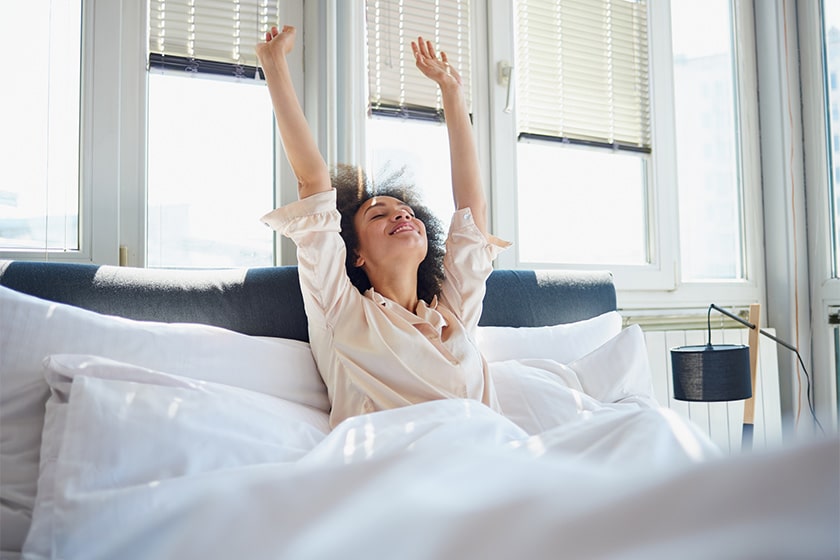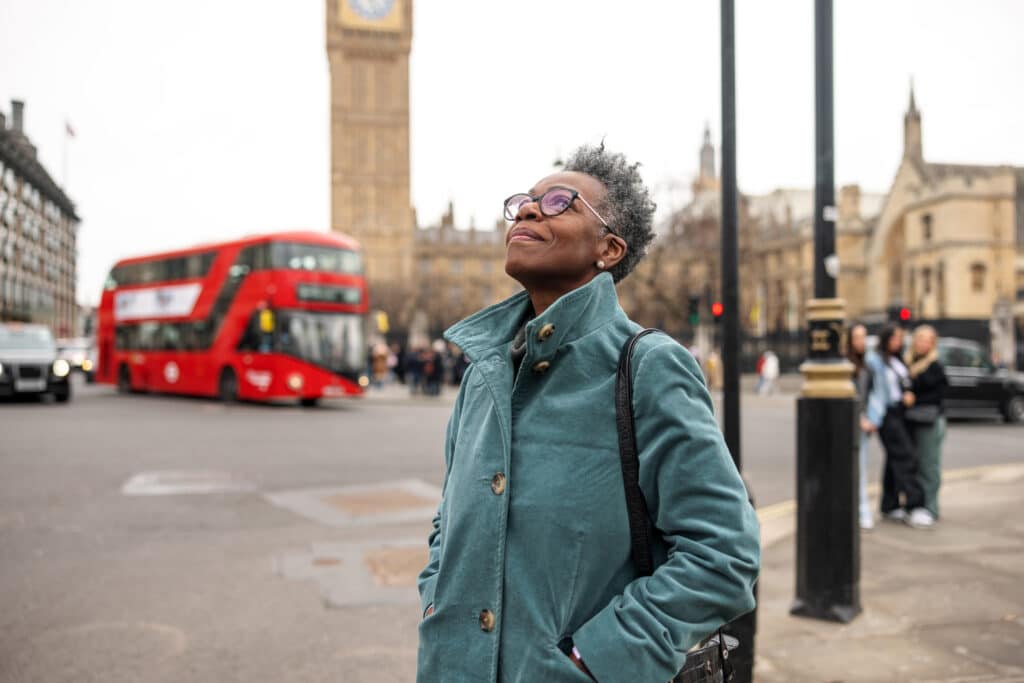Trouble with sleep can be the single most difficult thing about living with PTSD symptoms or frequent anxiety attacks. And yet, the harder you try to fall asleep, the more out of reach sleep can feel. Here are 5 common mistakes people make when they’re struggling to sleep, plus strategies that can help you get the sleep you need.
- Don’t: Take naps
We get it. You’re tired. You couldn’t sleep last night. The problem is, taking a nap can make it harder to sleep tonight, too. Naps tend to worsen sleep issues by weakening your sleep drive, or your body’s urge to go to sleep at night. Think of it like the basket of bread or chips before dinner. Eat too much and you won’t be hungry by the time the meal is ready.
Instead, do this: Follow a sleep schedule.
Going to bed and waking up at the same time (within an hour) each day is one of the best things you can do to help teach your body when it’s time to sleep. The result can be falling asleep more easily, and getting more sleep at night.
Both your bedtime and your wake time are important. If you didn’t sleep well during the night, it may be hard to get up when it’s time. Still, limiting the total time you spend in bed to no more than 7-9 hours can pay off in better sleep.
- Don’t: Wind down with alcohol
Sure, a glass of wine might make you feel more relaxed, or even sleepy. And you might fall asleep quickly after a night of drinking. That’s because alcohol is a depressant.
Yet while alcohol may help you drift off, the sleep you get after drinking tends to be lower quality. A key reason: Once the alcohol wears off, you can have what’s called “rebound alertness,” making you more likely to wake up from sleep. Worse still, these disruptions tend to happen in the second half of the night when you’d typically be getting deeper, more restorative sleep.
Instead, do this: Have a cup of tea
Bedtime rituals can be a key way to prepare your mind and body for sleep. A tried-and true one is herbal tea. Not only is sipping a hot cup of tea calming, but different types of tea have been used as sleep remedies for centuries.
Try different types of tea to discover what you enjoy. You don’t have to spend a lot or choose a kind that’s sold as a sleep aid. Just be sure to pick a tea free from stimulants like caffeine.
- Don’t: Scroll social media until your eyelids droop
It can be tempting to lie in bed with a smartphone or tablet. It may be your chance to catch up on the news, to see what people you know are up to, or even to watch a show. Yet doing so may actually make it harder to sleep.
To start with, experts say that the type of blue light that comes from electronic devices may confuse your brain by making it think it’s time to be awake.
Then there’s the fact that devices—and the apps on them—are also designed to make you want to keep scrolling or keep watching. Using them can seem to trigger feel-good reward triggers in the brain. Even with the best of intentions, you may find yourself staying up longer than you meant to.
Instead do this: Make your bedroom a screen-free zone
A better way to prepare for sleep is by doing a quiet screen-free activity, like reading, listening to music, or doing a puzzle outside of your bedroom. Try to start this wind-down activity at least 30 minutes before you want to turn the lights off. Then move into your bedroom when you’re ready for sleep. (And put your phone on the charger in a different room.)
- Don’t: Stay in bed when you can’t sleep
You know the feeling: You can’t sleep, you’re desperate to sleep, and all you can think is how terrible you’re going to feel tomorrow after this night of no sleep. The more you worry about your struggle to sleep, the more stressed you feel. And the more stressed you feel, the harder it is to sleep.
When that can’t-sleep cycle happens often, it can spiral. You may start to create a link between your bed and not being able to sleep. A better approach is to reserve your bed only for sleep and intimacy. That means not working in bed, not checking emails in bed, and not staying in bed when you’re tossing and turning.
Instead do this: Get out of bed and do something boring
Getting out of bed when you’re having trouble sleeping may seem like giving up. But it’s actually the best thing, according to sleep experts. Here’s how to do it in a way that helps you sleep: Get out of bed, and go somewhere outside of your bedroom. Keep the lights as low as you can, and steer clear of any electronic screens. Listen to quiet music or read a boring book until your eyes start to feel heavy. Then go back to bed. If you still can’t sleep, do it again.
- Don’t: Accept that poor sleep is something you have to live with
Everyone deserves to be able to enjoy a restful night of sleep. If you think PTSD symptoms are keeping you from living your fullest life, don’t wait to get help.
Instead, do this: Get the help you need
Freespira is one treatment option that’s medication-free and done from your own home. It works to reduce – or even eliminate – panic attacks and PTSD symptoms in just 28 days. Talk to an advisor to find out if Freespira can help you.
05587 Rev A



